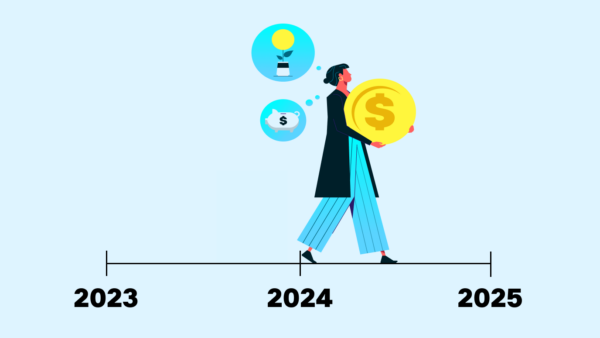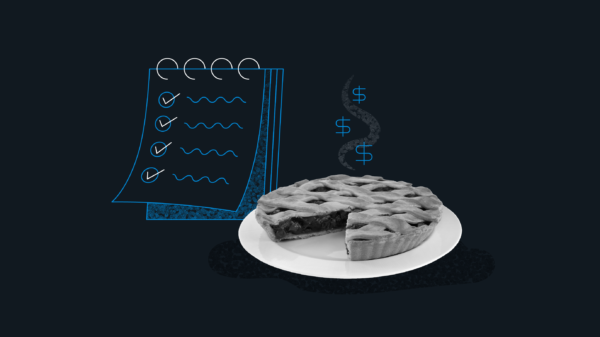Sep 8, 2017
“I Used to Be Broke. Now I Don’t Know How to Spend My Money”
A young writer learns how to spend wisely now that she finally has some money.

When my husband and I first married, we were broke. But romantically so! We had a tiny, drafty apartment in Kansas City, Missouri and unreliable cars inherited from parents who had moved on to bigger and better ones.
To be perfectly honest, being broke wasn’t awful. Sure, we dined on instant rice and 69 cent packets of Hamburger Helper and prayed our cars would start each morning before work. But we were in love and happy to be broke together.
I was a full-time student, pulling an early shift at a historic resort, making minimum wage and then driving across the city to evening classes five days week. My husband was a recent college graduate struggling to launch his career in digital marketing, working as a bank teller in the meantime.
So much has changed over the last eight years. We moved into three different drafty apartments, each one slightly larger than the next. We bought a house. We grew our family by three children and one dog.
We’ve have tripled our income–and our expenses. Between medical bills, seasons of unemployment, and broken appliances, we racked up thousands of dollars of debt.
More money, more problems (understanding money)
While our income increased, my spending habits never really matured. Now that our checking account rarely approached zero, I found I didn’t know how to use the excess cash each month.
It’s embarrassing to admit, but even though we earned more, I had gotten worse at managing money.
I don’t necessarily spend extravagantly, but I found myself spending thoughtlessly. In the past, every single dollar was assigned to a specific bill or payment. Things are different now. Suddenly regular trips to the coffee shop or a buying new outfit for a special occasion weren’t detrimental to our finances. I’d make these purchases without so much as a thought about our bigger financial picture.
Of course, these non-essential purchases added up over time, and I often found myself staring at my bank account wondering where our money went. I was resigned to the fact that we’d be saving less, or making smaller monthly debt payments than we’d originally planned.
I don’t necessarily spend extravagantly, but I found myself spending thoughtlessly.
Becoming a financial grown-up
As strange as it seems, the challenges I’ve been facing aren’t all that unique, they’re common to newly-middle class earners.
“When you finally overcome not having any money to purchase basic needs and you work super hard to have enough money in your budget to actually be able to purchase those needs…it’s hard to keep your priorities straight,” financial coach and creator of the Real Life Money Plan eCourse Jessi Fearon told me.
An increase in income can become an excuse to finally start splurging on all the things you’d been denying yourself.
As someone who was on the verge of bankruptcy in her early twenties, Fearon understood why I was having trouble learning to adjust my spending habits to my new financial reality. She suggested that I step back from living in the moment and pay close attention to my spending choices for a while.
Looking financially forward
Without clear priorities and goals for your money, you may suddenly find yourself falling back into a bad place with your money. Fearon suggested creating a budget and carefully tracking my progress toward specific goals.
Taking her advice, my husband and I created some flexible goals to match my ever-changing, freelancer’s income. Half of what I make each month is now sent right to our debt. This simple adjustment should allow us to be debt free by early next year. Since my husband’s income can cover our most important bills, like our mortgage and utilities, we’ve assigned what’s left from my earnings.
A quarter of my income goes straight to savings to pay my self-employment taxes at the end of each quarter. And we’ll invest 10% for my retirement, something I’ve put off until now. (I’m still in my 20s.) After that, we’re saving for emergencies and budgeting in some fun with what’s left.
What I learned
I’ve enjoyed splurging on $5 coffees and pricey pedicures, but it’s time to buckle down, create a new budget, and to take seriously living life a bit more frugally. I’m not about to go back to eating Hamburger Helper five nights a week, but I’m ready to put our money to work for the family, and I’m willing to put in the hard work to meet my new goals.
Stash Learn Weekly
Enjoy what you’re reading?
[contact-form-7 id="210" title="Subscribe" html_id="default"]Related Articles

The 2024 Financial Checklist: A Guide to a Confident New Year

9 Ways to Celebrate Financial Wellness Month

Budgeting for Young Adults: 19 Money Saving Tips for 2024

The Best Personal Finance Books on Money Skills, Investing, and Creating Your Best Life for 2024

What Is a Financial Plan? A Beginner’s Guide to Financial Planning

How to Save Money: 45 Best Ways to Grow Your Savings




